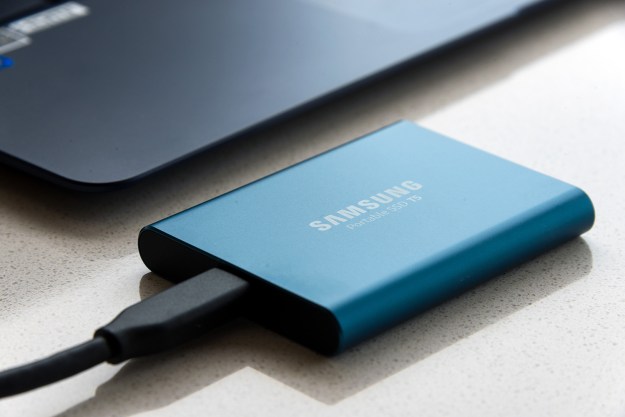 DMB (DigitalMediaBuzz.com) recently checked back in with Digg, the user-driven social content brand. Things are buzzing at Digg as they prepare a new website, now in private beta, which will go public in a few weeks.
DMB (DigitalMediaBuzz.com) recently checked back in with Digg, the user-driven social content brand. Things are buzzing at Digg as they prepare a new website, now in private beta, which will go public in a few weeks.
Six months into Digg Ads, the company has just switched CEOs as founder Kevin Rose takes over the reins from acting CEO Jay Adelson. Rose’s first official act – killing off the DiggBar. A bold move in itself, Rose added to the transparency integral to his brand, and made the announcement on his blog, candidly.
“Framing content with an iFrame is bad for the Internet. It causes confusion when bookmarking, breaks w/iFrame busters, and has no ability to communicate with the lower frame (if you browse away from a story, the old digg count still persists). It’s an inconsistent/wonky user experience, and I’m happy to say we are killing it when we launch the new Digg (sign up for the beta here). That said, we will continue to iterate on our browser extensions for Firefox, Chrome, and IE. Look for seriously revamped versions of those in a few months.”
DMB spoke with Bob Buch, Digg’s VP of business development about the latest developments at Digg. “The general feeling is one of excitement; we are on the precipice of launching the new Digg, and getting back to our roots of innovation, entrepreneurial vision, and moving at light speed in the online media space.”
Digg will be ‘unbanning’ previously banned websites. Personalization is the key. “It’s not as critical to curate specific interests for the user. What defines spam is an individual choice. If you are interested in McDonald’s, or Toyota, or Coca Cola, you may want to follow them, it may be interesting content for you,” Buch says. “No one size fits all Home Page anymore. It’s a natural evolution of the product.”

“Input from 40 million readers combined with Digg’s curation algorithm will always be a better filter than policies enforced by a small staff of humans. It’s another way we’re welcoming brands into the Digg conversation. More ways are coming soon,” comments Chas Edwards, chief revenue officer.
As for Digg Ads, they have exceeded expectation. “In addition to being fun to work on, each day brings new performance records. More people are engaging, more revenue coming in, and more advertisers – a broad range – are signing up. And 50% are repeat advertisers,” Buch says.
The Digg plan of transforming ads into worthwhile content is a trend that seems to be working – and the company plans to accelerate efforts in that arena. Two recent examples cited by Buch:
“During Toyota’s recent crisis, instead of pulling back on their marketing plans, they increased their investment, getting their critical messages out in Digg Ads, like, “What to do if your accelerator gas pedal sticks,” or “Is your Toyota on the recall list?”
“Newegg used Digg Ads for their pre-release of the Avatar DVD with a simple message: “Avatar, pre-order today.” They treated it as newsworthy, the benchmark being, would you e-mail and share this item with a friend?”
Asked about syndicating the Digg Ad model, Buch commented soon, but not yet, as they are still working on fine-tuning targeting capabilities. Through a daily auction process, Digg sets a market price for all advertisers in the system. “This auction has unique, inherent fairness, avoids buyer’s remorse and encourages advertisers to bid their utility – or what the click is truly worth to them.”
Digg then uses the “wisdom of the crowds” to adjust the pricing for each ad by rewarding the most popular ads with free bonus impressions so they are seen more at a lower average cost per click. Digg’s second stage plan is to increase the relevancy of ads by allowing advertisers to more granularly target their audiences. To do so, Digg plans to shift from single daily auction to a real-time auction model.
Buch and his colleagues have been pleasantly surprised by how positively the community has responded to the ad model. “Users recognize Digg needs to make money, and they also recognize we are working to be innovative and customize messages to the community. Our ad system empowers users, impacts price, and rewards quality. We’re building an eco-system around it. It’s a game-changer for the ad industry; there are agencies now developing expertise in writing Digg headlines.”
Digg’s current mantra: “Listen to users; collect feedback; keep building and iterating.” Occupied fully with the redesign and delivering apps for iPhone and Android, Digg looks to the future with great expectations.
As everybody in the social media space is trying to gain equilibrium amidst the Facebook and Twitter tsunami’s of success, Digg is confident.
“Imitation is the greatest form of flattery. Digg is a first mover and innovator. The online ad market is so huge, the rising tide will raise all the boats,” Buch concludes.
Editors' Recommendations
- How to check your CPU temperature
- How to do a hanging indent in Microsoft Word
- How to do hanging indent on Google Docs
- How to delete Slack messages on desktop and mobile
- How to download Vimeo videos on desktop and mobile


